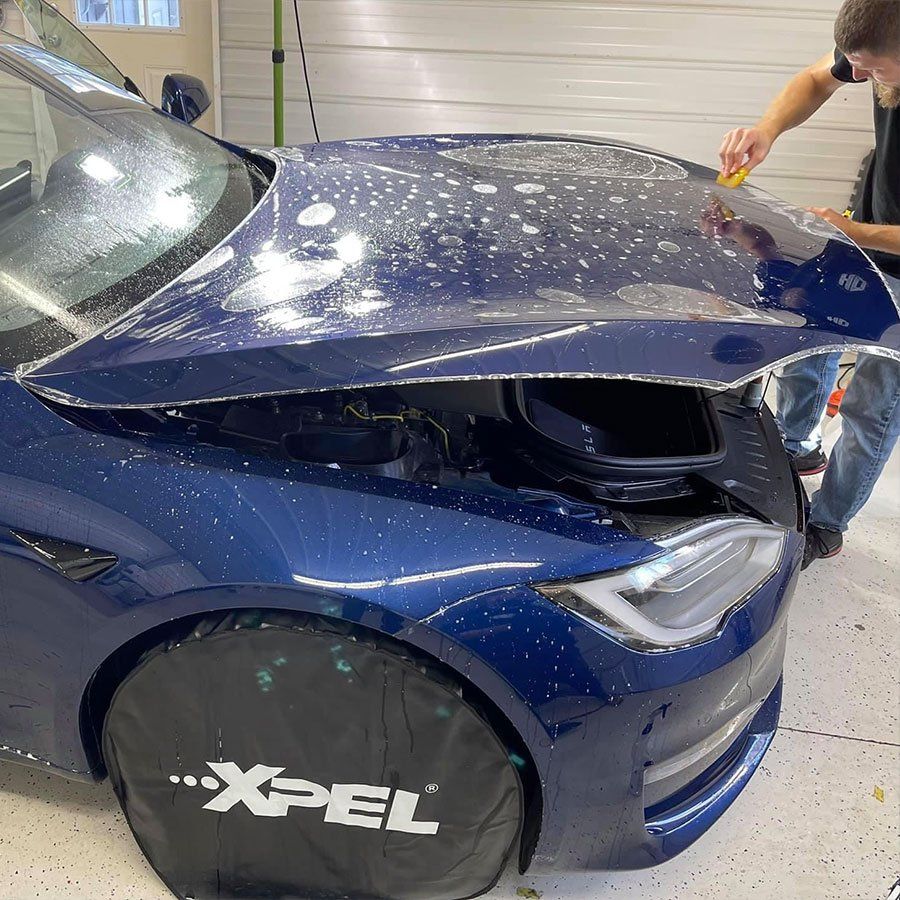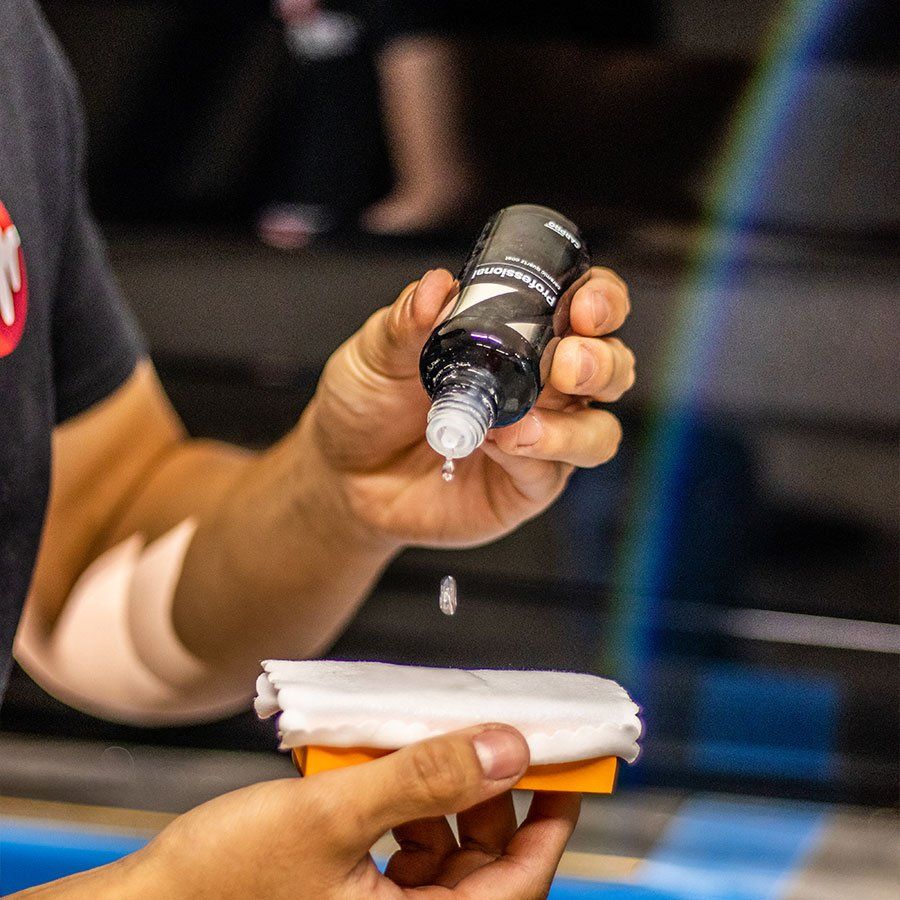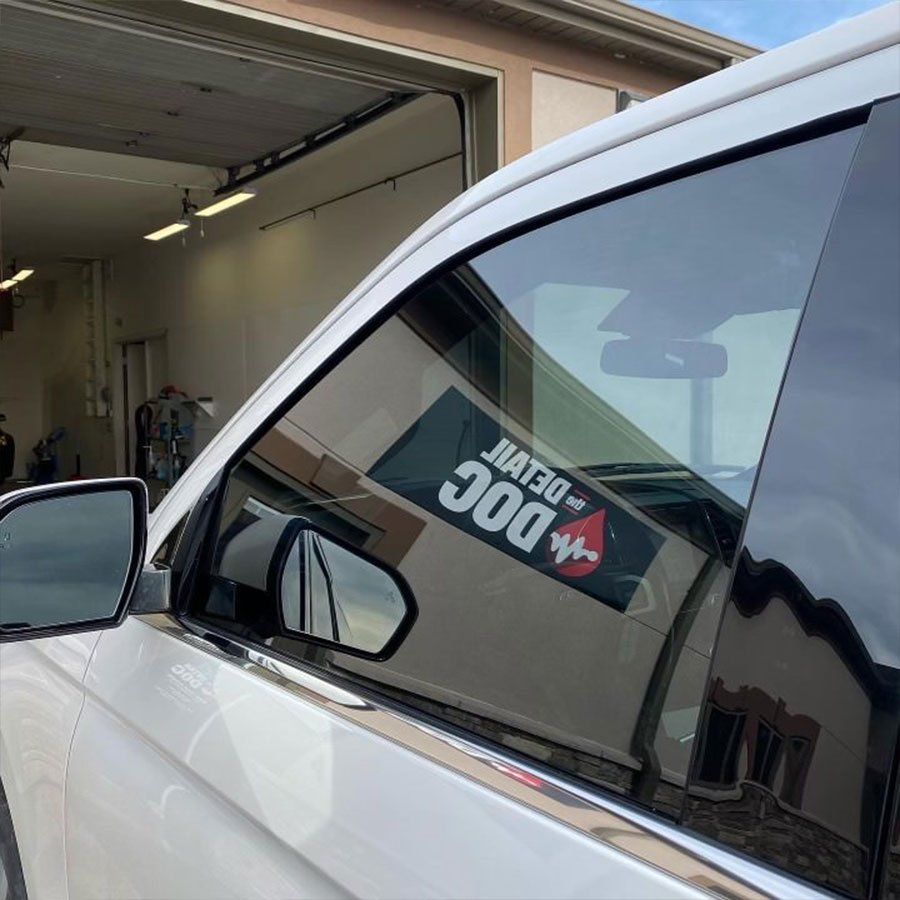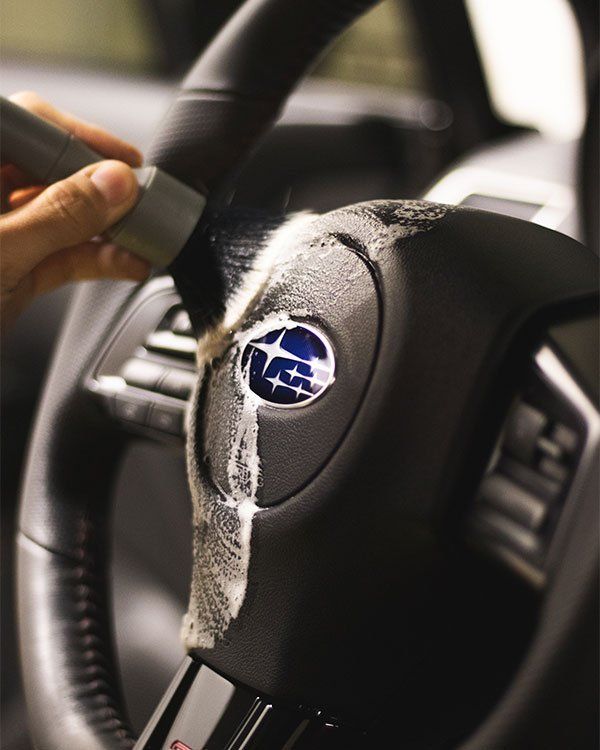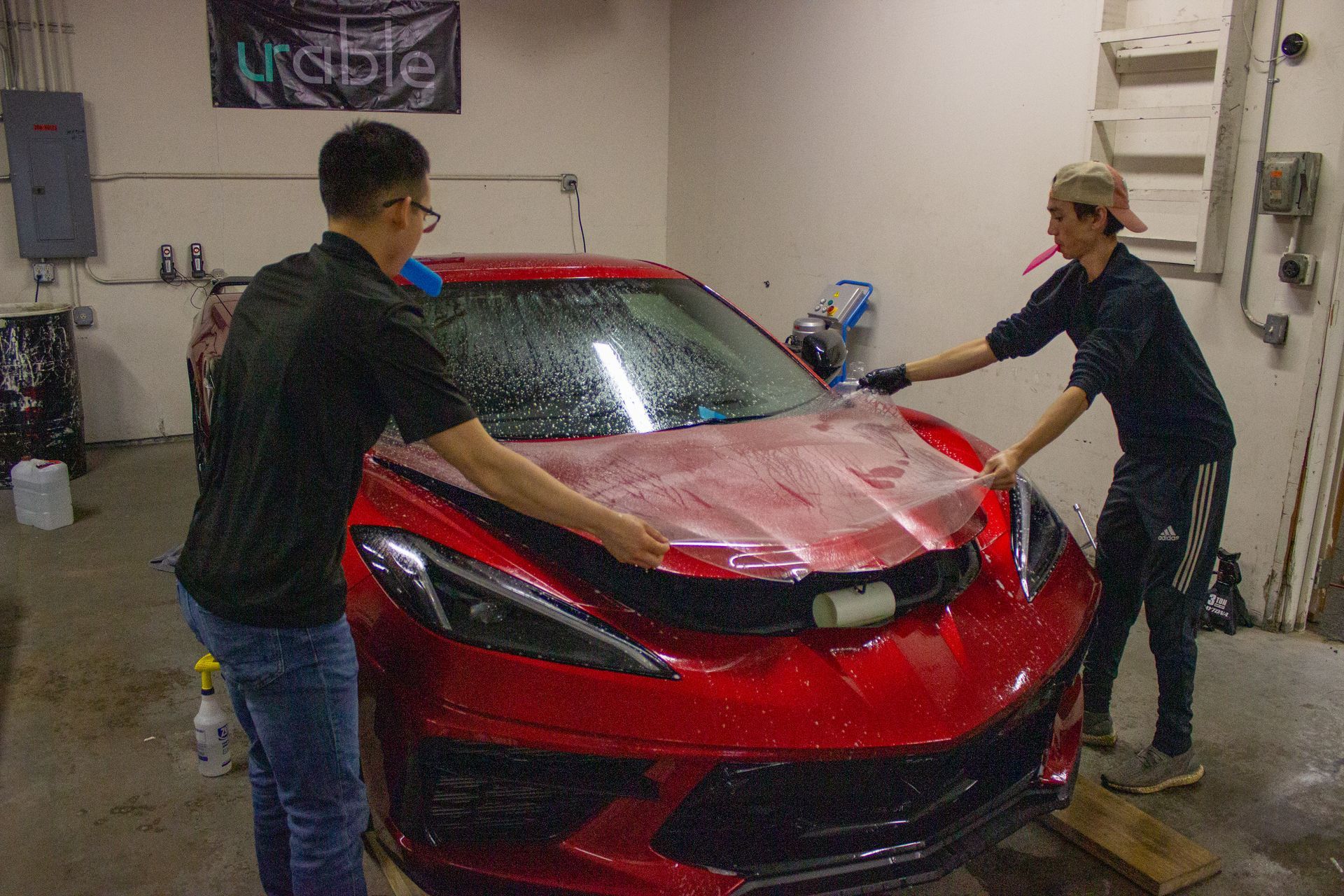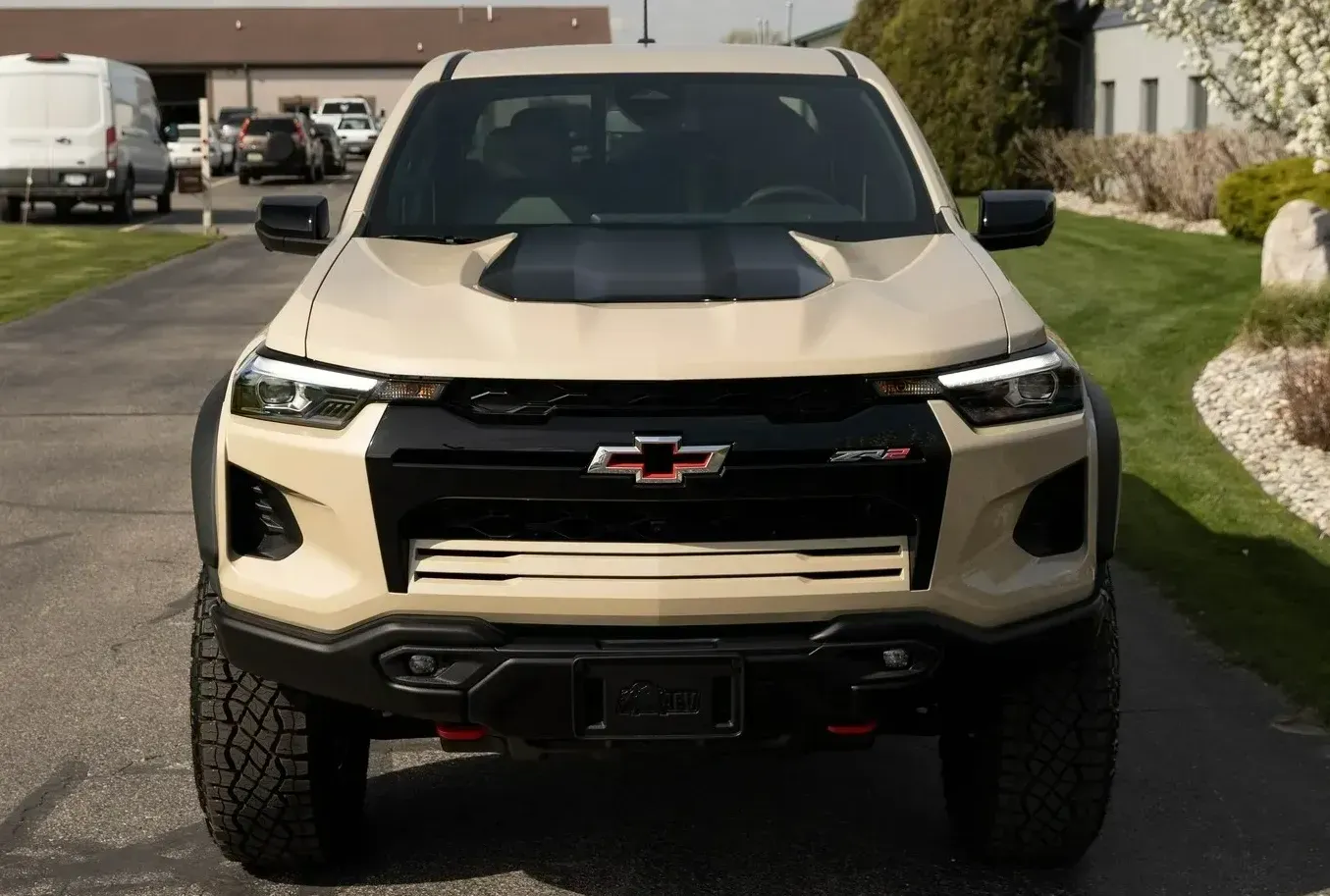The Detail Doc Blog
Does Ceramic Coating Really Protect Against Rock Chips: A Detailed Guide
(989) 244-0505 GET SCHEDULED NOWCeramic coatings provide defense against environmental contaminants and UV rays but cannot guarantee protection against moderate or severe, deeper rock chips. For rock chip protection, consider using paint protection film (PPF), which possesses self-healing properties and acts as a screen protector for the car's paint. In this blog post, we will discover if ceramic coating really protects against rock chips!
Debunking the Ceramic Coating Myth
Ceramic coating is highly regarded for its ability to shield a vehicle's surface from various external elements. While it is quite effective in protecting against environmental components, it does not provide complete immunity when it comes to defending against the harsh impact of rock chips.
This reality often surprises many car owners who expect the ceramic coating to act as an impenetrable shield against any type of damage. However, it's crucial to understand that even the most robust ceramic coatings have limitations, particularly in scenarios involving high-velocity objects like stones and debris hitting the car's exterior. While it undoubtedly enhances the overall resilience of the vehicle's paint, it's essential to pair it with paint protection film (PPF) for comprehensive defense against rock chips.

Understanding Ceramic Coating Limits
When it comes to defending against rock chips and physical impact, it's essential to recognize that ceramic coating has its limits. The protective layer formed by ceramic coating is not impervious to the high impact force of road debris, particularly rocks kicked up by other vehicles or harsh debris encountered during daily driving.
Understanding the Hardness Scale
Understanding the hardness scale is crucial to comprehending the limitations of ceramic coatings. Ceramic coatings, often rated at 9H on the Mohs scale, are indeed harder than traditional vehicle clear coats. However, this hardness doesn't translate to complete resistance against high-velocity impacts. While the coating can defend against environmental elements, it's not designed to prevent the forceful impact of sharp objects like rocks hitting the vehicle's surface at high speeds.
Recognizing these limitations is crucial, as it helps manage expectations about what ceramic coatings can effectively protect against while also understanding scenarios where they may fall short in providing complete safeguarding.
The Science Behind Ceramic Coating
Ceramic coating is not just an ordinary protective layer for your car. It's a product of cutting-edge technology, employing nanotechnology to achieve extraordinary results. When applied to your vehicle's paint, ceramic coatings form an almost invisible molecular bond that works wonders in enhancing and preserving the appearance of your car.
By utilizing nanotechnology, these coatings create a hydrophobic (water-repelling) layer that makes water beads up and roll right off. This self-cleaning property not only makes your vehicle look sleek and pristine but also drastically reduces the effort required for regular washing and maintenance.
Understanding Hydrophobicity
Hydrophobicity might sound like a complex term, but it really just means "afraid of water." The nanoscopic texture of the ceramic coating creates a super-smooth surface that repels liquids, preventing them from sticking to the paint. This hydrophobic effect has another advantage—the prevention of water spots. When water evaporates from the surface of your car, it can leave behind mineral deposits, which can be quite stubborn to remove. The hydrophobic nature of ceramic coatings greatly diminishes the chances of these unsightly water spots forming.
Furthermore, the durable nature of ceramic coatings provides an outstanding defense against environmental damage and chemical etching. As you drive through different environments, your car's paint becomes susceptible to a myriad of hazards, such as bird droppings, tree sap, and bug splatters. In addition to these natural adversaries, harsh chemicals from road treatments and industrial fallout can also take their toll on your vehicle's paint. When coated with a quality ceramic coating, the molecular layer acts as a shield against these threats, minimizing the risk of permanent damage.
Overall, ceramic coatings act as a fortress for your car's paint, offering unparalleled protection against various environmental assaults while maintaining that glossy showroom shine.
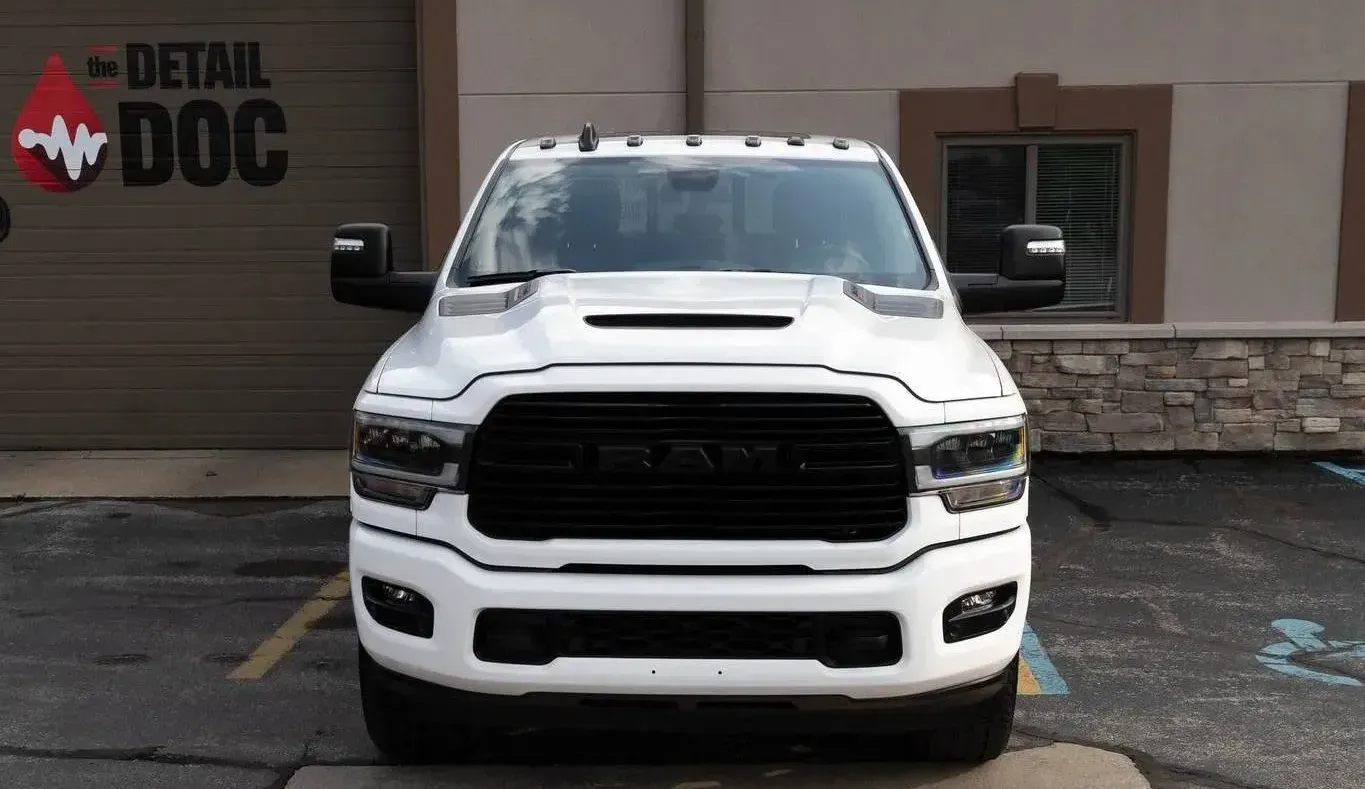
Alternative Protection for Your Vehicle
Apart from ceramic coatings, other options are available to provide additional protection for your car's exterior. One popular alternative is Paint Protection Film (PPF). PPF is a type of thin, transparent film made of thermoplastic urethane. Its purpose is to act as a barrier against impact and abrasion, making it an ideal solution for rock chip protection. The film adheres to the surface of the vehicle, shielding it from scratches, stone chips, and other potential damage. Unlike ceramic coating, which primarily enhances the look of the car's paint and makes it easier to clean, PPF serves as a physical shield to prevent damage.
When considering protection for your vehicle, it's important to weigh all your options and understand their individual benefits. Many car owners find value in choosing a combination approach that includes both ceramic coating and PPF. This combination offers a comprehensive shield that addresses various types of potential damage. Ceramic coating provides an excellent level of gloss and hydrophobic properties, keeping your car looking shiny and clean while repelling water and dirt effectively. On the other hand, PPF acts as a sacrificial layer, absorbing impacts such as rock chips or scratches that would otherwise damage the underlying paint.
The combined approach allows you to enjoy the benefits of both technologies—improved aesthetics and long-lasting protection against physical impacts. While ceramic coating ensures that your vehicle maintains its glossy finish and repels contaminants, PPF adds an extra layer of defense against rock chips and scratches, preserving the integrity of your car's paintwork.
Benefits of Ceramic Coating
When it comes to caring for your vehicle, making the right choice is crucial, especially when it concerns protection against environmental elements. Ceramic coatings have attracted attention for their exceptional benefits, promising advantages that surpass traditional waxing and sealants. Let's delve into some of the key benefits of ceramic coating in detail:
Ease of Maintenance
Ceramic coatings are formulated to reduce the adhesion of dirt and contaminants on your vehicle. This means that when you're cleaning your car, the surface won't hold onto grime as stubbornly as it would without the coating. As a result, maintaining your vehicle's appearance becomes significantly easier. Imagine spending less time scrubbing and more time admiring a clean and radiant finish!
Longevity
One of the most appealing aspects of ceramic coatings is their impressive durability. When applied correctly and maintained properly, a high-quality ceramic coating can provide robust protection for several years. This longevity means less need for frequent waxing or reapplications, saving you time, effort, and money in the long run.
Enhanced Aesthetics
The visual appeal of a well-maintained vehicle is undeniable. Ceramic coatings contribute to this by providing a glossy finish that enhances the overall depth and richness of your car's color. It's like giving your car a polished sheen that makes it stand out from the crowd. This heightened aesthetic allure reaffirms your investment in both protection and beauty.
These benefits show that ceramic coatings offer practical advantages like ease of maintenance and long-lasting protection while elevating the aesthetic appeal of your vehicle. By choosing a ceramic coating, you're not just safeguarding your car; you're enhancing its visual allure—a win-win situation for any vehicle owner seeking top-tier defense and exquisite aesthetics.
Best Practices in Vehicle Surface Maintenance
So, you've made the savvy choice of applying a ceramic coating to safeguard your vehicle's paintwork. However, the investment won't stay effective on its own—it requires consistent care and attention to uphold its protective qualities. By instituting a routine maintenance process, you can significantly extend the durability of this specialized solution. Not only does regular ceramic maintenance help preserve your vehicle's lustrous shine, but it also plays a critical role in upholding the protective properties of the ceramic coating.
First and foremost, it's important to emphasize that safe washing techniques are non-negotiable when it comes to preserving ceramic coatings. Opt for a gentle handwashing approach using a pH-neutral soap to prevent any abrasive damage or degradation of the coating.
Safe Washing Techniques
When washing your car, steer clear of abrasive sponges or brushes that can scratch the surface or compromise the integrity of the ceramic coating. Instead, utilize soft microfiber cloths or mitts to gently cleanse the vehicle without causing any harm to the protective layer. Understanding safe washing techniques is just one part of the equation. Another key aspect is regularity. Consistently washing your vehicle ensures that contaminants such as dirt, dust, and pollutants don't accumulate and eat away at the protective layer offered by the ceramic coating.
Implementing a Maintenance Routine
To maintain the effectiveness of your ceramic coating, creating a customized maintenance routine is vital. This routine should include regular washes and inspections to identify any issues early on. By catching potential problems early, you can take proactive steps to address them before they escalate into larger issues. This practice significantly reduces the chances of chips and scratches appearing on your vehicle's surface. Furthermore, incorporating occasional top-up treatments or rejuvenation sessions for your ceramic coating can rejuvenate its protective properties, ensuring that your vehicle continues to benefit from enhanced durability and resistance to environmental hazards.
Implementing these measures not only extends the lifespan of your ceramic coating but also safeguards your vehicle against potential damages, ensuring that it continues to shine and stand out on the road.
When it comes to preserving your vehicle's appearance and protection, regular maintenance coupled with a high-quality ceramic coating can make all the difference. If you're ready to take this step toward protecting your vehicle, feel free to contact us at (989) 244-0505.

